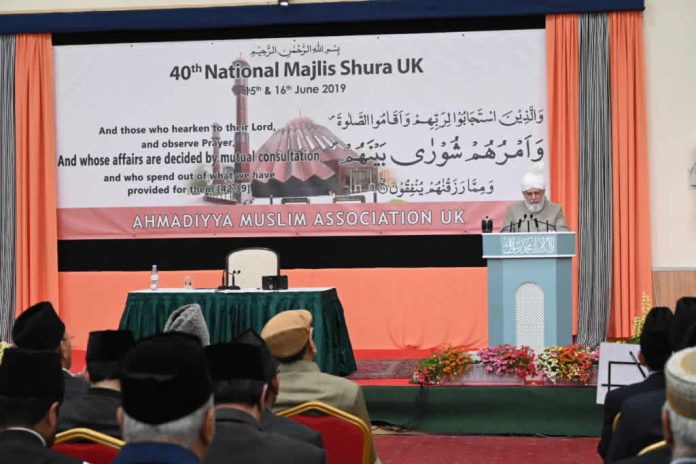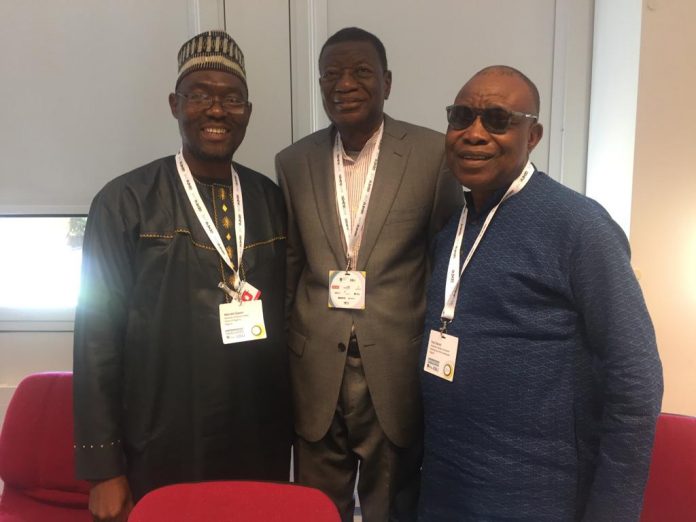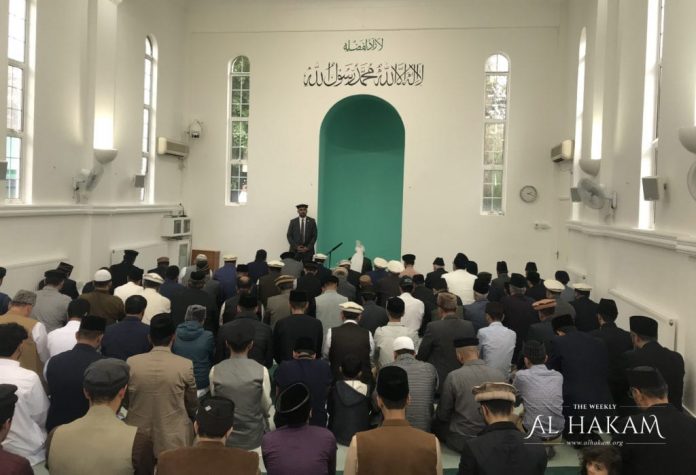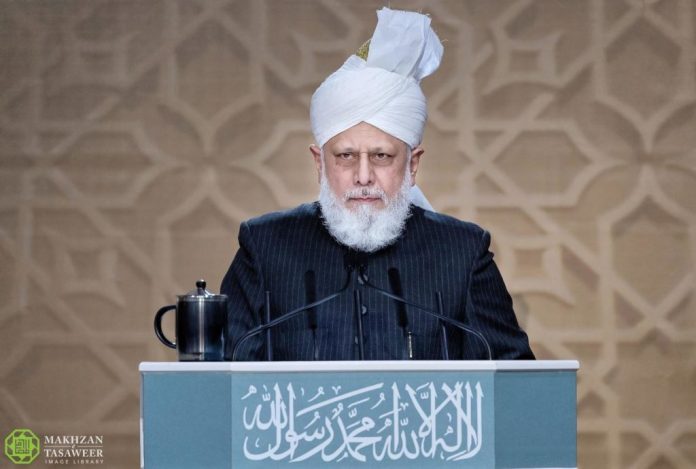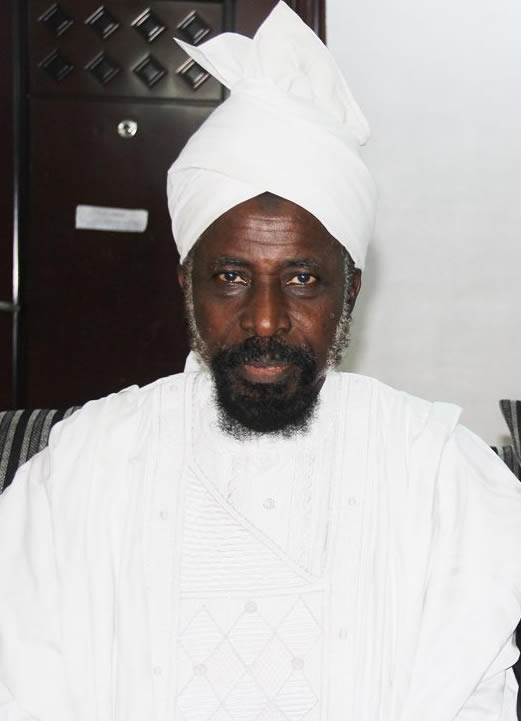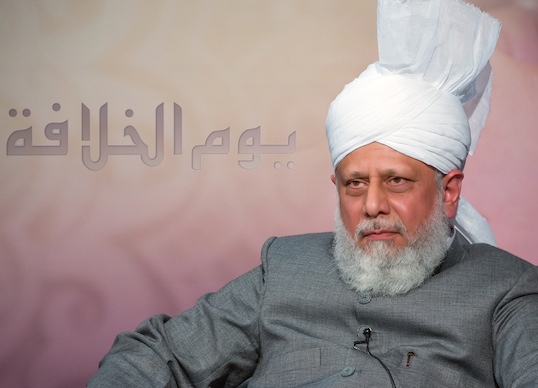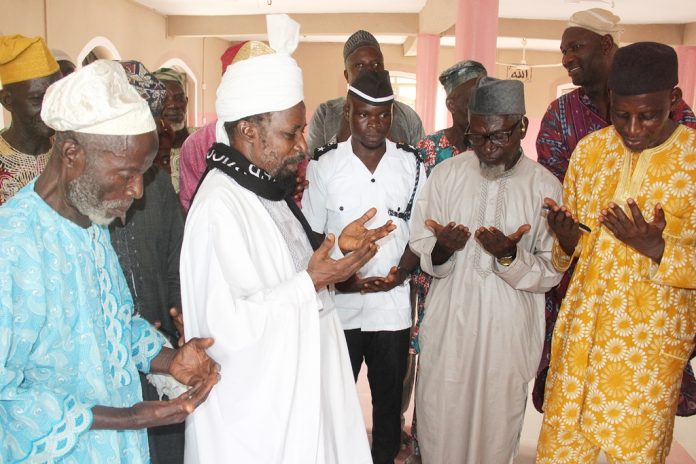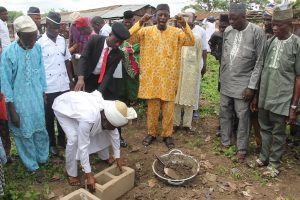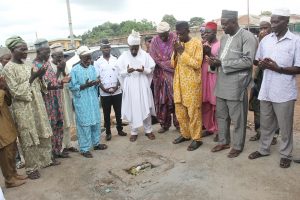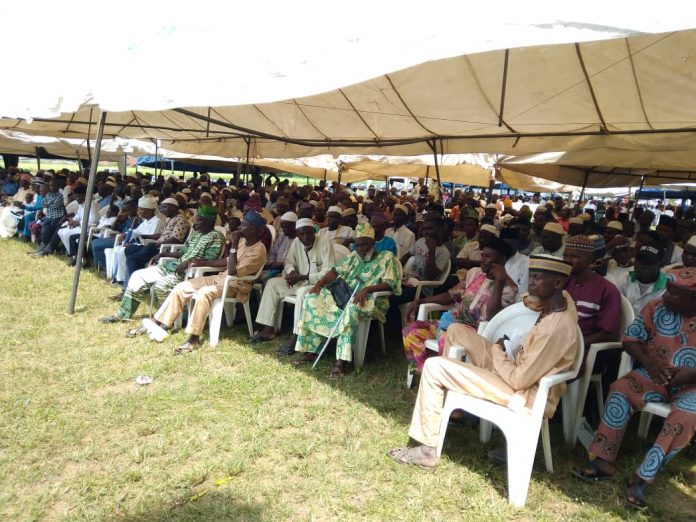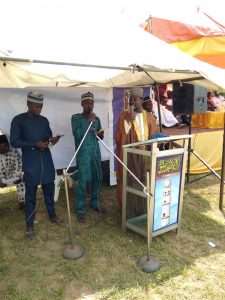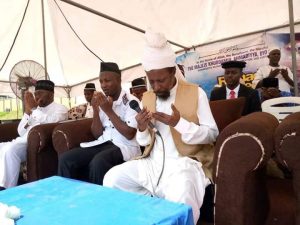After Hazrat Amirul Momineen’saa arrival in Tahir Hall, Baitul Futuh at around 13:07 local time, the concluding session of the National UK Majlis-e-Shura commenced with the recitation of the Holy Quran and its translation.
Thereafter, Huzooraa took to the rostrum and addressed the national Shura.
After reciting Tashahud, Ta‘awuz and Surah al-Fatihah, Hazrat Khalifatul Masih Vaa said that he was confident that all members of the Shura, in their individual capacities, will have taken full part in the proceedings of the Shura.
Huzooraa said that initially, some of the members will have given suggestions in their respective subcommittees, and after having discussed them, they will have been presented to the full house.
Huzooraa said that in the concluding session, he would elaborate on the responsibilities of Shura members in light of a speech given by Hazrat Mirza Bashiruddin Mahmud Ahmad, Musleh-e-Maudra, in a Majlis-e-Shura.
Hazrat Musleh-e-Maudra said that Shura members should inculcate the fear of Allah in them. No matter how eloquent or well-spoken a person is, this cannot be a criterion for their success in life. True success and victory in this life and the Hereafter demands that we live our lives with the belief that our lord is Allah.
Huzooraa then quoted a verse of the Holy Quran:
رَبَّنَا اِنَّنَا سَمِعْنَا مُنَادِیًا یُّنَادِیْ لِلْاِیْمَانِ اَنْ اٰمِنُوْابِرَبِّکُمْ فَاٰمَنَّا رَبَّنَا فَاغْفِرْلَنَا ذُنُوْبَنَا وَ کَفِّرْ عَنَّا سَیِّاٰتِنَا وَ تَوَفَّنَا مَعَ الْاَبْرَارِ۔
“Our Lord, we have heard a Crier calling [us] unto faith, ‘Believe ye in your Lord,’ and we have believed. Our Lord, forgive us, therefore, our sins and remove from us our evils, and in death, join us with the righteous us.” (Surah Al-e-Imran, Ch.3: V.194)
With this, Huzooraa said that we Ahmadi Muslims should endeavour to live our lives in this way with true righteousness. If we do not, then we should ask ourselves what our worth is.
Today, when our Jamaat has millions of members across the world, the truth remains that we represent a very small proportion of the world’s Muslims. Our Jamaat’s population is, in contrast, a mere drop in the ocean. Our Jamaat is, thus, seemingly insignificant.
However, there is one thing that we can take pride in; that we have heard the cry of a caller and that we listen, and we obey. This is our true value and a great blessing that should remain at the forefront of our minds. It should remain embedded in our hearts at all times.
As members of the community of the Promised Messiahas, Huzooraa said that our views and opinions and beliefs should be rooted in the fear of Allah the Almighty.
The fear of Allah should take precedence in every sphere of our lives. Thus, every decision we make in our lives should be made with the fear of Allah.
If, in the world today, people perceive our truth and significance, it is only due to the fact that we are a united community that stands together in all circumstances at the hand of Khalifatul Masih. They attest to the fact that we live our lives according to the true teachings of Islam, that are peace, love and humanity. We are the group that preaches the true Islam as taught by the Holy Prophet Muhammad, peace and blessings of Allah be upon him. Many people, as a result of this, are drawn to the Jamaat each year.
Thus, all Shura members have an immense responsibility on their shoulders.
Another profound point made by Hazrat Musleh-e-Maudra was that if a person makes a wrong decision, it would not be detrimental to the Jamaat so long as a person made it with the best intention and fear of Allah. On the contrary, if a person makes a good decision and they do not have the true fear of Allah in their hearts, it will lead to harmful and negative consequences. If we make an error of judgement whilst having the fear of Allah in our hearts, Allah will rectify the mistake Himself. Through His grace and mercy, He will forgive us and lead us towards success.
Huzooraa said that some people may query this statement as to how a correct decision can lead to harm or a negative decision can have positive results. In answer to this, Hazrat Musleh-e-Maudrasaid that once the Holy Prophetsa saw in a dream that he was performing the tawaf [circuit] of the Holy Ka‘bah and thus, he set out for the Holy Ka‘bah. This was not done for any personal benefit or to increase his own personal influence among people. The Holy Prophetsa did this with the best of intentions, yet as it was not the decree of Allah, it was an innocent mistake. The decision was made with the complete fear of Allah. As a consequence, in Chapter 48, verse 2 of the Holy Quran, Allah the Almighty states:
اِنَّا فَتَحْنَا لَکَ فَتْحًا مُّبِیْنًا
“Verily, We have granted thee a clear victory.”
Allah the Almighty stated that instead of causing harm, this decision would result in the progress of Islam. Through this, the entire world saw how the innocent mistake foreshadowed a glorious victory of Islam.
At the Battle of Uhud, the Holy Prophetsa stationed a group of Muslims at a certain place, he instructed them that they were not to leave their assigned posts under any circumstances. However, when the enemies of Islam were in a state of defeat and retreat, the Muslims disregarded the instruction of the Holy Prophetsa and left their posts. True obedience, however, required that they followed the instruction, no matter the circumstances. Thus, the victory of Muslims turned into the defeat of Muslims.
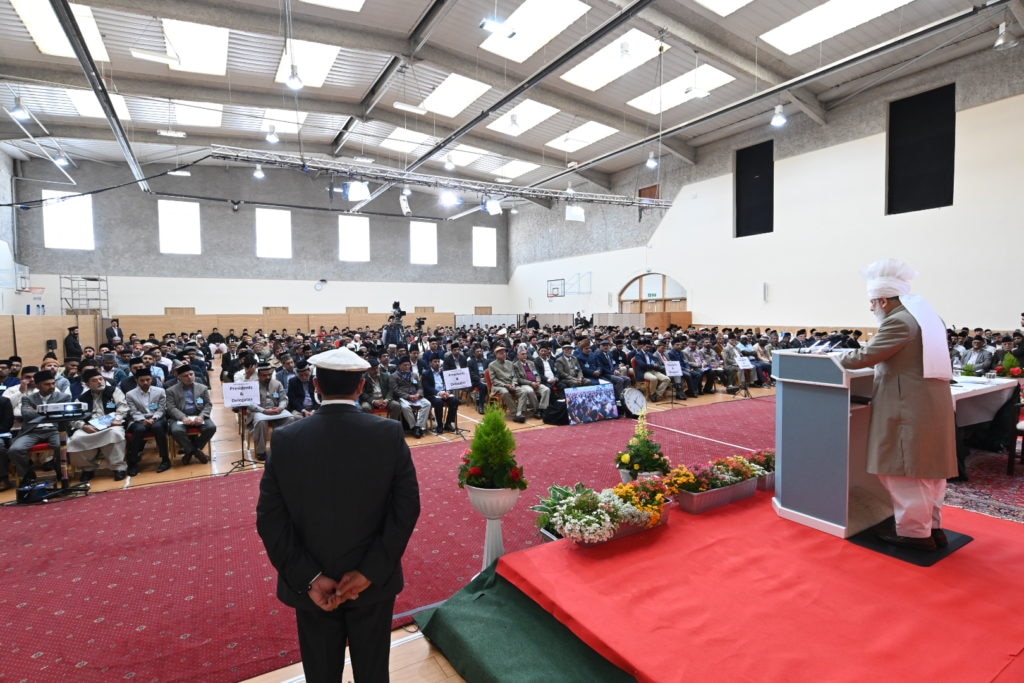
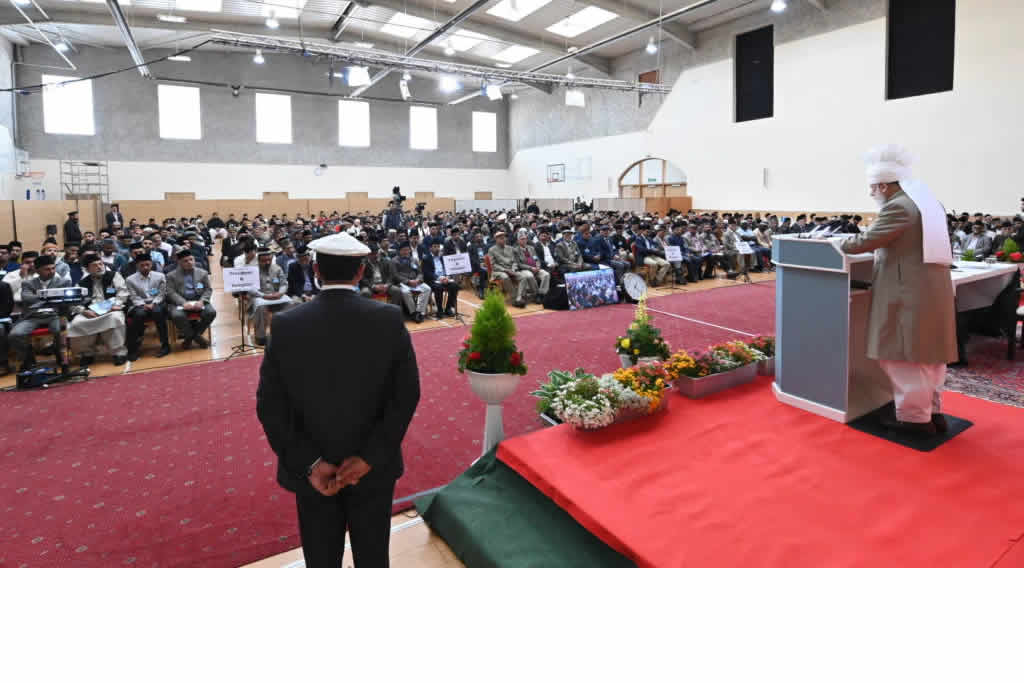
Huzooraa said that he wished to remind each member of the Shura that they must always remain true to themselves and Allah at all times. The members should be ever ready to live their lives for the sake of the cause of Islam and they should never be motivated to desire the praise of others. For instance, when giving Chanda or giving other financial sacrifices, they must ensure that it is done for the sake of Allah and not to impress others.
The work of a spiritual community is far greater than worldly companies. The goals of a worldly company are limited and remain focused on limited areas. However, if the Promised Messiahas or his Khulafa had followed such worldly goals, our tabligh would have stopped long ago. For example, if it was ever decided that funds could only be used in the area they were raised, then success would never have been seen in the Jamaat.
If it was decided that we should stop building mosques in order to save money, then we would see that our spiritual success would come to a halt and we would no longer witness the blessings of Allah the Almighty.
The national budget should be drawn in a way that enables the work of the Jamaat to be fulfilled. Above all else, before allocating resources and making plans, the fear of Allah should be at the centre of our minds. If plans are made with the fear of Allah and according to the desire of Khalifatul Masih, then we will be successful. The budget should be used to help all needy people. If we look at the budget, however, one marvels on how this can be possible.
The Jamaat’s budget is different to worldly organisations. Where worldly groups gather huge sums of money, the Jamaat is able to achieve huge tasks with minimal resources.
Huzooraa added that Shura members should set the best example for people to follow. Only when this has been achieved can others be inspired to better their examples, increase in financial sacrifice and offer time for the Jamaat.
Shura members should recognise that their duties do not end after walking out of this hall but remain throughout the year. As Shura members, it is an obligation to remind members of the Jamaat about the importance of financial sacrifice so that the tasks of the Jamaat can be achieved.
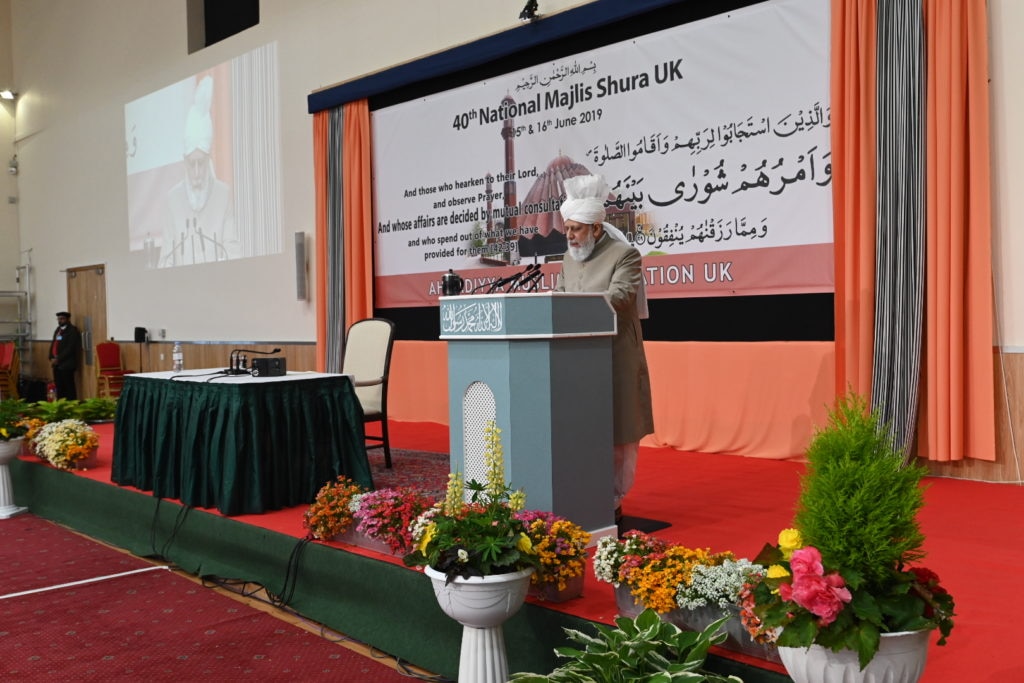
Members of the Shura must remember that our opponents are taking all possible measures to impede the growth and success of the Jamaat. Around the world, schemes are being hatched to achieve this. Despite their cruel and unjust endeavours, Allah grants us unending success.
Many of the members migrated here from abroad, while others were born and raised here. Allah has, in any case, granted everyone the opportunity to represent their respective Jamaats at the Shura. It is up to the members, Huzooraa said, that they prove not only as representatives in name but through their conduct and righteous examples too.
A true Shura member is he who talks truthfully and sincerely for the betterment of the Jamaat.
Another element of fulfilling the duties of representing the Jamaat is to be a righteous example for members of their respective localities and encourage them to take part in Jamaat events and activities.
At the end, Huzooraa reiterated the fact that the duty of all representatives would continue throughout the year and if the decisions of the Shura were approved by Huzooraa, then every effort must be made to fulfil these decisions and others should be motivated to do so.
Huzooraa prayed toward the end that the fear of Allah remains firmly ingrained in the hearts of members of the Shura and that they strive to fulfil their obligations as members of Majlis-e-Shura.
Thereafter, Huzooraa led the congregation in dua, after which group photos were taken with the delegates.
Huzooraa then proceeded to examine the construction work of the new complex at Baitul Futuh, after which he led congregational prayer at Baitul Futuh Mosque.



